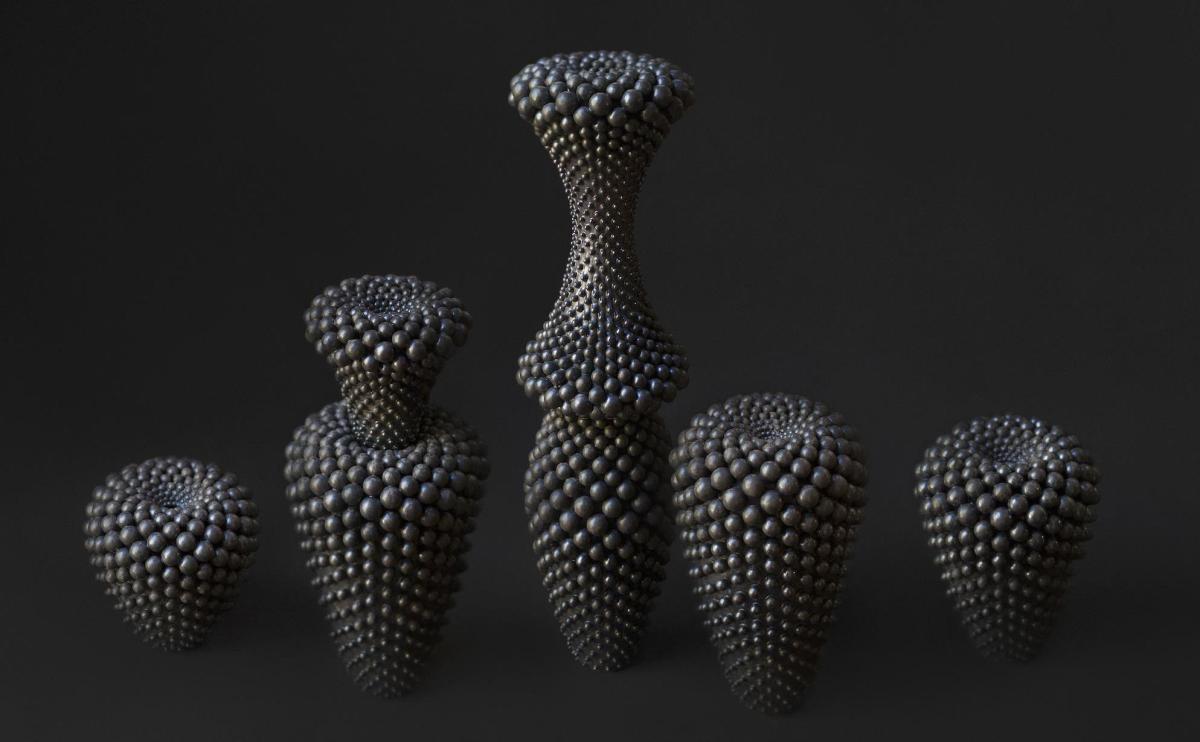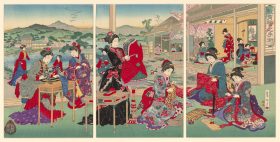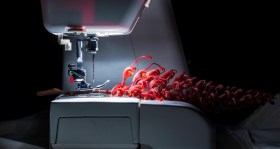The launch of the Willoughby Bequest 2020 Commissioning Program this week is part of a suite of new programs recently announced by the Powerhouse which supports living artists – the first for the collecting institution.
‘This is an $180,000 investment into the practice of Australian artists’, Lisa Havilah, Chief Executive, Powerhouse Museum, told ArtsHub.
‘With this Bequest we are doing something we haven’t done before at the Powerhouse Museum – we are focusing on commissioning new works to build our collections, and deliberately turning to the practice of living artists.’
The Willoughby Bequest 2020 Commissioning Program is an ambitious initiative aimed at bringing new work into the Museum’s permanent collection and builds on what has been one of the most significant bequests of objects and funds received by the institution, made two years ago in the name of Barry John Willoughby.
‘Mr Willoughby gifted objects from his own personal collection to the Museum, and we celebrate his capacity in building this collection to support a range of artistic disciplines and examine how they intersect.’ said Havilah.
The bequest honours Barry Willoughby, a Sydney-based collector of decorative arts, whose passion was not only for celebrating and rethinking sculpture and ‘the vessel’ within glass and ceramic practice, but in engaging with the studio practice of artists.
‘We wanted to take that bequest and expand it by investing back into living practice in his name. We feel that these new commissions perfectly represent his passion to support artists,’ she added.
The Powerhouse Museum has commissioned six works across glass and ceramics to the value of $30,000 each, totalling $180,000. The artists are charged with creating new work that continues to expand their current practice.
The artists awarded the commissions are: Scott Chaseling, Tim Edwards, Steve Harrison; Nicolette Johnson, Jennifer Kemarre Martiniello and Renee So.
‘We are really thrilled to be supporting these six artists and their work, and fortunate to have them enter the collection,’ said Eva Czernis-Ryl, Curator Powerhouse Museum, who has selected the Willoughby Bequest artists.
Havilah continued: ‘These new Willoughby Commissions have been curated by Eva Czernis-Ryl to represent artists from across Australia that are at the front end of contemporary practice.’
COMMISSIONING FOR IMPACT
Havilah believes the role that bequests play in collections today is critical. ‘These incredible gifts enable us to support artists, but also to leverage further investment.’ she said.
She said that the commissioning process stemmed from the collection itself, and the strength of the Powerhouse Museum’s curatorial team in understanding the industry and artists working today.
‘Commissions like these also help us focus our collecting; to look at the gaps, and to collect and archive benchmark practice today,’ said Havilah.
Several of the selected artists have well-established international careers. Their practice pushes the traditional definitions of glass and sculpture into fresh considerations that are global, alert and contemporary in nature.
Scott Chaseling has lived in Berlin and has worked across Japan, the UK and France, choosing to use glass as a sculptural material that contests the rigid definitions of place. Over his 30-year career he has questioned the boundaries of narrative in our times, and more recently pushed the vessel into architectural space. He was winner of the 2017 Hindmarsh Prize, and is the first Australian to participate in the exclusive Soneva Fushi Glass Residency (2019).
Adelaide-based Tim Edwards came to glass from a ceramic background and has worked regularly in the USA. His forms have a bold sense of design and surface manipulation, essentially flattening the vessel so it takes on a drawn quality. In 2006 he was awarded the Rakow Commission from the Corning Museum of Glass (USA), being the second Australian to receive this significant award.
Connecting also with place is UK-born Steve Harrison, a wood-fire ceramic artist who trained in a Japanese tradition. His passion for glazes made from local materials – in particular the use of sericite mica for its translucent porcelain quality – is matched by his enthusiasm for making kilns from local mud bricks and solar firings.
Also bringing an international perspective and new approach, Nicolette Johnson was born in the UK and grew up in Texas before basing herself in Brisbane. She was the inaugural winner of The Design Files Design Award and her stoneware explores symmetry and botanical motifs, applying a modern aesthetic to re-imagined ancient forms. With a background in photographic art and social documentary, she has come more recently to ceramics in 2015.
Adding another perspective, urban-based Aboriginal (Arrernte) glass artist, Jennifer Martiniello creates contemporary vessels that pay tribute to traditional weavers. Her present body of work is inspired by traditional woven eel traps, fish traps, and coiled and open weave baskets by Kaurna, Ngarrinjerri, Gunditjmara, Arrernte and Northeast Arnhemland weavers. She began working in glass in 2008, having worked in textiles, photography, printmaking and sculpture since the 1980s, with a parallel career as a poet, writer and editor.
Hong Kong-born, Australia-raised, and now London-based, Renee So has been creating an impact with her grounded, hand-built ceramic forms that slide with an ambiguity between figure and vessel. She draws from the traditions of antiquity and historical portrait busts, and yet her contemporary sculptures offer a smorgasbord of art history, religion and gender considerations. She was awarded the Freedman Foundation Travelling Scholarship for Emerging Artists in 2003.
Havilah said that the Willoughby Bequest 2020 Commissioning Program is an important component of a suite of new programs announced in recent weeks by the Powerhouse, that put living artists first, including the inaugural NSW Creative Industries Residency Program which supports makers by providing creative work space, and the Generations Fellowships designed to support early career musicians through partnered mentorship.
The Willoughby Bequest Commissions will be unveiled late 2020.





